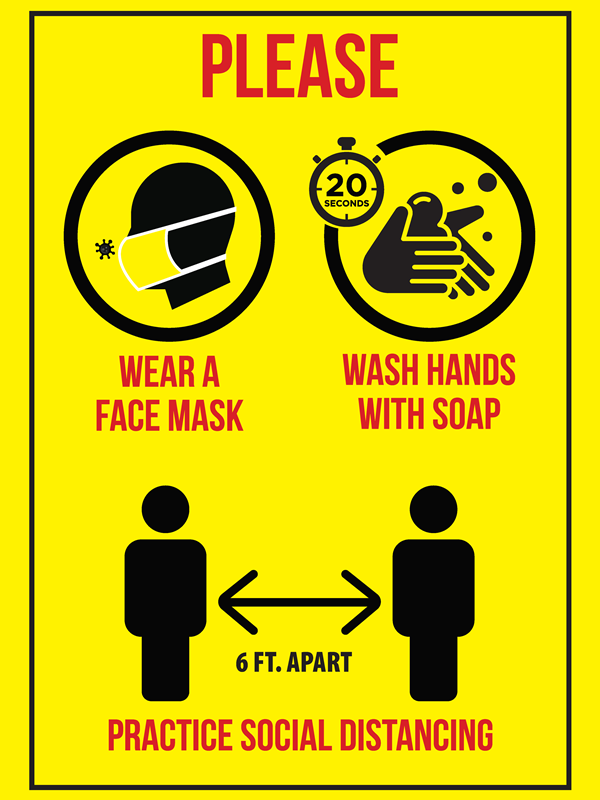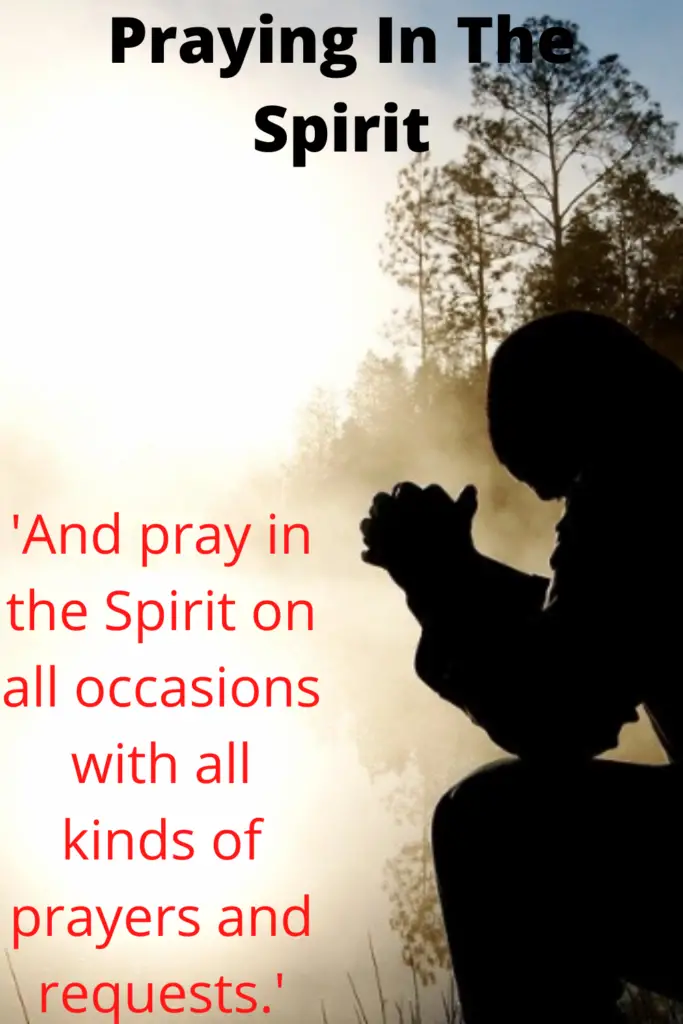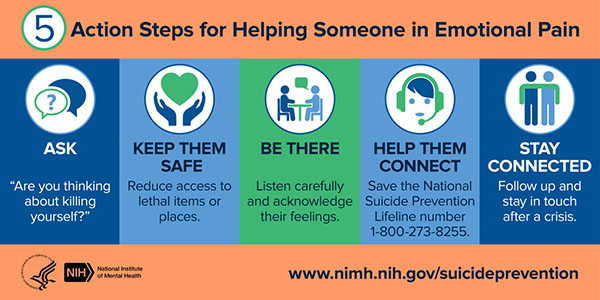Need to move the needle on your faith? One great way of doing that is to actually know what it looks like to live by faith. What are the characteristics of a woman of faith? The Bible is the best place to start to answer this question.
In this post, we will explore the lives of female characters of the Bible and what makes them stand out as biblical heroines of faith.
Let’s start with some definitions.
What does it mean to be a woman of faith?
Faith has two basic meanings in the Bible. One has to do with believing that God exists and the other is trusting him with your life.
A woman of faith knows that God did not create this world and has left it unsupervised. Rather, he is still sitting in heaven and is very much involved in the affairs of earth.
She not only believes that He is God of the universe. But she also believes that He is a personal God who knows her every thought and feeling. Her every want, need, and desire.
She is a woman who believes that her salvation is as a result of what Jesus did on the cross and that her life is committed to him. She is a woman with a deep abiding, unwavering trust in God during the good and bad times.
She knows God is the author and finisher of her life. And in accordance with all this, she lives a life built on the purpose God has called her to fulfill. The way she chooses to live doesn’t make sense to everyone. That’s because she lives by faith and not by what can be seen by others.
What does the Bible say about women of faith?
The Bible tells us about faithful women by telling us their stories. Faith journeys aren’t always linear. In fact, nobody has a smooth, straightforward faith story.
As we look at the faith stories of women in the Bible, you will see that the faces of faith can differ. And because they are so different, each woman can teach us a variety of things about living a life of faith as a woman.
Traits of a woman of faith
Studying the lives of these women can show us that women of faith are
-
fervent in prayer and abiding in trust
-
Bold, persistent and shameless in approaching God with their needs
-
Imperfect but believing
-
Filled with the Holy Spirit
-
Obedient to God’s call on their lives
-
Pushing through fear everyday
-
Discerning of spiritual things
-
Stepping out in faith regularly
-
Struggling in faith sometimes
-
Grateful for God’s faith in them
-
Spending time with God regularly
-
Believing the impossible
-
Believing the unlikely
-
Wise in exercising faith
women of faith are fervent in prayer and abiding in trusting God
Hannah is one of the Bible’s most outstanding faithful woman of God.
Her story is not only heart-rending but also heartwarming. You see, she was married for years but just couldn’t get pregnant.
Back then, being able to have children, especially sons, pretty much defined a woman.
A woman who couldn’t produce offspring was deemed useless. After all, it was her responsibility to help her husband carry on the family name. If she could not fulfill this role, the next generation was in jeopardy.
No matter how much her husband loved her, the rest of her family and the entire town would look at her with pity and shame.
Such was Hannah’s reality.
Her husband’s other wife, Peninnah, reminded her every single day of her uselessness. Of her childless state. She mocked Hannah mercilessly.
But Hannah had a superpower that Peninnah could not take from her.
Fervent prayer.
Hannah knew how to pray!
One fateful year, when they went to the temple, Hannah prayed with such fervency that the priest thought she was drunk.
But oh no!
Hannah was pleading her case before God. She wasn’t knocking at heaven’s doors. She was banging at it in open desperation. She was vulnerable before God.
“Oh no, sir!” she replied. “I haven’t been drinking wine or anything stronger. But I am very discouraged, and I was pouring out my heart to the Lord. 16 Don’t think I am a wicked woman! For I have been praying out of great anguish and sorrow.” (1 Samuel 1:15)
She was extremely specific in her prayer too. Telling God exactly what she wanted and exactly what she was going to do with the blessing.
Hannah walked away from that prayer spot believing that her prayer was answered. She just knew it. She could finally enjoy a meal again.
“Oh, thank you, sir!” she exclaimed. Then she went back and began to eat again, and she was no longer sad. (1 Samuel 1:18)
A woman of faith prays. Alot. And fervently. And with an abiding trust in God that He will come through for her.
women of faith are bold, persistent and shameless in faith
A woman of faith isn’t only fervent in prayer. She is also persistent in prayer.
Matthew 15:22-28 describes a very moving story. It details a woman’s distress over her sick daughter. Jesus is in the area just when this is happening to her.
This is her opportunity to get her problem solved!
But wait. Jesus responds in a very unusual manner.
As she cries out to get Jesus’s attention, Scripture says Jesus doesn’t answer. He was actually ignoring it seems. But her calling out to him was so very persistent that she begins to annoy the disciples. Their solution is to send her packing.
When Jesus finally gives her his attention, again he says something that could almost be considered an insult.
He replied, “It is not right to take the children’s bread and toss it to the dogs.” Matthew 15:26
You see, to the Jewish person, anyone who wasn’t Jewish was practically regarded as a dog. A very unclean creature beneath the status of many other animals. This woman was a gentile. Was Jesus actually calling her a dog?
She could have taken Jesus’s words personally. She could have fired back.
But she did not. Instead, she replied:
Yes it is, Lord,” she said. “Even the dogs eat the crumbs that fall from their master’s table.”
She persisted. She knew Jesus could heal her daughter. She was not about to walk away because of what people thought about her status in society. She needed help. Now. And the help was standing right there in front her.
She swallowed her pride. She didn’t bother to get upset. She kept her eyes on her goal. Her daughter needed healing. That’s what her visit was about.
Jesus’s response?
Then Jesus said to her, “Woman, you have great faith! Your request is granted.” And her daughter was healed at that moment”. Matthew 15:28
Luke 18:1-8 records Jesus telling a parable about a widow who gets what she wants from an unjust judge because of her persistence. Jesus says that it is her faith and consistency in her persistence that make this cruel judge give in to her request.
Godly women who have an abiding faith are persistent in prayer. Even when it feels like the prayers are going no further than the ceiling. Even when it seems like God has taken a vacation. Even when the situation looks hopeless and is getting more and more hopeless in your eyes. Don’t get sidetracked. Don’t get distracted.
She prays all the more. She’s a prayer warrior instead of a worrier.
women of faith are Imperfect but believing
Rahab is one of the less honorable women of the Bible. Her identity is told to us from the get go. She was a prostitute.
It’s so easy to judge her because of her lifestyle. Before you judge her though, I would like to point out somethings.
Rahab may not have been living a peachy, spotless life. She may not be someone who would get invitations to the who-is-who events. But she sure had one thing going for her: she believed in the God of heaven in a nation where that was not a thing. So when the Israelite spies were doing undercover work in Canaan, she helped them out.
It is her faith that made her want to help them. She had heard how God had caused the Red Sea to swallow the Egyptian army to save the Israelites. Word had gotten around that God had fed the Israelites by allow water to flow from a rock and allowing food to fall from the sky.
It made many afraid. But it made Rahab believe. Indeed, faith comes by hearing the Word.
Before the spies lay down for the night, she went up on the roof and said to them, “I know that the Lord has given you this land and that a great fear of you has fallen on us, so that all who live in this country are melting in fear because of you. We have heard how the Lord dried up the water of the Red Sea for you when you came out of Egypt, and what you did to Sihon and Og, the two kings of the Amorites east of the Jordan, whom you completely destroyed. When we heard of it, our hearts melted in fear and everyone’s courage failed because of you, for the Lord your God is God in heaven above and on the earth below. Judges 2:8-11
Women of faith aren’t perfect people. They don’t always live like the Proverbs 31 woman. Yes, the Proverbs 31 woman represents the ideal. We’re striving to be like her.
But while we’re getting there we can find comfort in the fact that God meets us where we are. And I do mean wherever. Whether in the brothel or in the bank.
Rahab believed in God and she believed in his power. And that’s why she becomes a part of the story to help Israel access the abundant blessings promised to them for over 400 years.
And still there is more.
This imperfect woman of faith becomes a part of the genealogy of Jesus! Imagine that. This prostitute didn’t remain one.
As she grew in faith, she cleaned up her life and is recorded in the bloodline through which Jesus is born. Rahab became a godly woman. A woman of virtue. A woman of reputation. In fact, she is listed among the faithful in the hall of faith.
By faith the prostitute Rahab, because she welcomed the spies, was not killed with those who were disobedient. Hebrews 11:31
God calls imperfect women too, friend. The only requirement is that you trust Him with your whole heart.
women of faith are filled with the holy Spirit
It was no secret that Elizabeth was beyond childbearing age. The whole community knew it.
She was ashamed of and burdened by her childless state. But Elizabeth was not forgotten by God.
God had told her husband, a priest, that she would get pregnant. And she did.
The Bible says in Luke 1 that her baby would prepare the way for Jesus. But even more striking is that this baby would grow to be a spirit filled man.
It follows that a spirit filled child needs to have the guidance of a spirit filled parent. Elizabeth was just that. Mary, who was pregnant with Jesus, visited her during her pregnancy. And guess what happens.
When Elizabeth heard Mary’s greeting, the unborn baby inside her jumped, and Elizabeth was filled with the Holy Spirit. Luke 1:41
Women of great faith have the gift of the Holy Spirit. He leads her into truth. Helps her to discern spiritual things. Hones her character so she becomes more and more like Jesus everyday. Fills her up with all she needs to stay strong when life gets tough.
women of faith accept God’s call in obedience
Mary was only a teenage girl when Gabriel told her she was going to be the carrier for the promised Messiah. Her’s is an amazing story if you use imagination and time travel.
Imagine this teenage girl being in a room. She’s not rich. In fact, quite the opposite. Where she lives is considered an inner city. A ghetto . Just not a great neighborhood.
Yet she was faithful woman of God. Even in those conditions, her character shone brightly.
Any good jew knew the prophecy of Jesus’ coming. Mary more than knew it. She lived in expectation of it. And because of this, she was very much prepared when Gabriel appeared to her, delivering the news.
What strikes me is how humble she was when her calling was revealed to her.
“I am the Lord’s servant,” Mary answered. “May your word to me be fulfilled.” Luke 1:38
Mary doesn’t question. She doesn’t second guess. She doesn’t attempt to be disobedient. She just goes with the flow. With impressive obedience.
If you are a woman of faith with a strong personality and an independent spirit, it can be hard sometimes for God to get you to go in the direction he wants you to. Why? Because you usually have your own plans or your own ideas of how things should unfold.
Take a leaf from Mary’s book. Great women of faith are obedient to God’s purpose for their lives. Without question.
This is a powerful lesson in this age of girl bosses.
women of faith Push through fear
This outstanding woman remains nameless. We know her because of the faith she exercised in a moment of great difficulty and fearfulness.
The woman with the issue of blood is what we call her. She had been sick for 12 years and spent every penny she had to get well.
According to the law, she should not have been among people.
When a woman has a discharge of blood for many days at a time other than her monthly period or has a discharge that continues beyond her period, she will be unclean as long as she has the discharge, just as in the days of her period. Leviticus 15:25
She should have been afraid to break this law. And she was!
But, you know what? Women who trust God and are desperate don’t care what other people think. They are only concerned with what God thinks.
She was desperate for healing. By faith, she could envision herself being made whole. If only she could just touch Jesus’ clothes.
This woman pushed through the crowd and her own fear just so she could reach Jesus. She took a massive risk. It paid off big time.
But Jesus said, “Someone touched me; I know that power has gone out from me. Then the woman, seeing that she could not go unnoticed, came trembling and fell at his feet. Then he said to her, “Daughter, your faith has healed you. Go in peace. Luke 8:46-47
Women of faith are not always like Wonder Woman. Bold and brave.
Sometimes they are afraid. But they do life scared anyway because they are desperate for healing and peace. They carry hope in their hearts because of the abiding faith they have.
They understand that what they seek most is on the other side of fear. So they either fight the fear and step out in faith or tuck away the fear in their purse and step forward anyway.
women of faith Discern spiritual things
Anna was a prophetess who was living at the time of Jesus’s birth. Her life had been plunged into despair when her husband passed away 7 years after they married.
After that, she dedicated her life to service at the temple. Spending that much time with God caused her faith to be on a whole new level.
As she tarried with God in prayer, hers became a waiting faith. She waited for the coming of the promised Messiah.
There is no doubt that God revealed many things to her. Future things that I’m sure other’s wondered how she knew.
Anna was able to discern spiritual things because of the deep relationship and faith she had.
So when Jesus was brought to the temple as a baby for the Jewish rites of circumcision, she was very much there. It was an ordinary day. But she knew there was something different. The Holy Spirit broke through on that ordinary and made it extraordinary. He spoke to Anna. As she looked at the baby swaddled in Mary’s arms, she knew this was the promised Messiah. S
With her spiritual eyes, with her sharp spirit of discernment, she knew this baby was the promised Savior.
When you think about how Jesus was treated by even the religious leaders, it took great faith to know, understand, and accept that this baby was God.
But Anna had no trouble. Because she had been all wrapped up in God so much so that her whole life had been well marinated.
There was also a prophet, Anna, the daughter of Penuel, of the tribe of Asher. She was very old; she had lived with her husband seven years after her marriage, and then was a widow until she was eighty-four. She never left the temple but worshiped night and day, fasting and praying. Coming up to them at that very moment, she gave thanks to God and spoke about the child to all who were looking forward to the redemption of Jerusalem. Luke 2:36-38
Women of faith spend time with God. Lots of hours over their lifespan is dedicated to staying in God’s presence. They have an acute discerning spirit through which God works to reveal things to them or to impress things on their hearts.
women of faith step out in faith
God women who have confidence in God’s power step out in faith, especially when it makes sense to nobody else. The Old Testament contains many of these stories.
I think about the widow mentioned in 2 Kings 4. She was a mother to two boys. Her husband suddenly dies and leaves the whole family in debt.
As was the custom of the time, people could be enslaved in payment for their debts. This was exactly what was about to happen to this widow’s sons. So she reached out to Elisha in desperation.
What he instructed her to do required great faith. It required her to believe the impossible. She was about to lose her sons. There was no door that wasn’t worth pushing. So she stepped out in faith.
Elisha told her to get as many jars as she could from her neighbors. Next, she was to pour the measly amount oil she has left in the bottom of her jar into all of the borrowed jars.
Think about it. What would anyone expect to happen?
The miraculous happened because this woman’s faith activated God’s intervention. As she poured, oil came gushing out of the almost empty jar until all the jars were full! She could now sell the oil to pay off her debt and had enough money left over to support her family.
Had she not followed God’s instruction through Elisha. Had she not exercised faith that God could work this miracle. She would have missed out on her blessings. She could have lost her family.
Women who say they trust God step out on nothing but the trust they have in God. Their faith becomes the evidence that what they believe is already done. Just as Hebrews 11 says. They believe that God can make something out of nothing.
They will do things that seem ridiculous to people who have no understanding of how faith works. They know and understand that sometimes to access your freedom, you have to believe the impossible. They know that sometimes you have to rely on your faith to make your desires real.
women of faith sometimes struggle with their faith
Let’s be real. A life of faith isn’t easy. You can’t always tell what God is up to. And you certainly don’t always know what’s supposed to be your role.
This is where the struggle gets real.
Sometimes women of faith struggle with their faith. Sarah knew all about it.
When God promises that she would get pregnant and have a son, she was all of 89 years old and her husband Abraham was one year shy of his 100th birthday.
Sarah laughs at this idea.
So Sarah laughed to herself as she thought, “After I am worn out and my lord is old, will I now have this pleasure?” Genesis 18:12
It is indeed laughable to think that a 90 year old could have a child naturally. But we’re dealing with God here. He specializes in doing the impossible and silencing naysayers.
Women of faith don’t always remember this though.
Despite her moment of weakness, Sarah too is counted in the hall of faith in Hebrews.
And by faith even Sarah, who was past childbearing age, was enabled to bear children because she considered him faithful who had made the promise. Hebrews 11:11
You see, God understands our humanity. He knows our weaknesses. He is very much aware that sometimes no matter how much he has done for us, our faith doesn’t always carry us. And in those moments of weakness, he sympathizes with us and lovingly reminds us of his track record.
Even women who otherwise have an unwavering trust in God need to be reminded that God never promises anything he can’t deliver. He remains the same throughout the ages.
If you struggle sometimes to believe God, be encouraged by Sarah’s delay in trusting God. She eventually recovered her faith and was able to use it to receive the blessing that God had promised.
women of faith are Grateful for God’s faith in them
Gratitude. Its importance to the Christian woman’s life cannot ever be underestimated.
This is especially true when a woman has been through a whole lot in this life. So much so that when God has rescued her, she’s just grateful. Her story is so wrapped up in God, that the gratitude comes pouring out of her in all kinds of ways.
Look at this list of grateful women from the Bible.
After this, Jesus traveled about from one town and village to another, proclaiming the good news of the kingdom of God.The Twelve were with him, and also some women who had been cured of evil spirits and diseases: Mary (called Magdalene) from whom seven demons had come out; Joanna the wife of Chuza, the manager of Herod’s household; Susanna; and many others. These women were helping to support them out of their own means. Luke 8:1-3
These women had been rescued from demons and sickness. From then on, there gratitude led them not only to follow Jesus to support his ministry out of their own pockets.
Their faith had been primed when they were set free from and forgiven of a multitude of sins. Jesus welcomed them into his company despite their past. He showed them he had faith in their capacity to live above a life of sin. Jesus never judged them.
They responded with loyalty, gratitude and service to others who also needed to be rescued. Because when you have been forgiven of much, you want others to get a taste of how good God is.
women of faith Spend time with God regularly
One quality of a godly woman is that she knows her faith isn’t self-sufficient. It comes from a source. And she has to spend time plugged in to that source.
The story of Mary and Martha comes to mind. They were sisters and dear friends of Jesus along with their brother Lazarus. Jesus was a regular visitor to their home.
On such occasion, Martha busied herself with playing hostess but Mary was too thirsty for the Word to be interested in being the proper host. She sat with Jesus, drinking up every word he delivered.
Martha wasn’t happy about this at all. She complained bitterly to Jesus and demanded Mary’s help. Jesus needed to redirect her attention.
Martha, Martha,” the Lord answered, “you are worried and upset about many things, but few things are needed—or indeed only one. Mary has chosen what is better, and it will not be taken away from her. Luke 10:41-42
Mary and Martha represent two types of women of faith. Martha is like those who serve others selflessly but they pour into others so much that they forget to spend time with God or take care of themselves. Mary is like those who understand the balance between when it’s time to serve others and when it’s time to pause to feed their spirit.
Faith is enhanced with serving others but it can become weak and weary and even die without its flame being consistently fanned by time with God.
As a woman of faith, taking time to have some meaningful one-on-one time with God is important. Quiet meditation isn’t optional. Making time for God can seem like an impossibility when life is packed. Ditch something from your schedule or get creative.
women of faith believe the impossible
Being a woman of God does not protect you from grief or disappointment. In fact as you mature in your faith it can sometimes feel like God steps back a little bit and allows the storms of life to have their way with you.
In those moments a believing woman forgets about the way she feels and relies on what she knows about God.
That’s the way to believe the impossible when life is knocking the life out of you.
Martha knew something about this.
Their brother Lazarus had become sick. He was dying. They decided to rely on their friendship with Jesus. When they sent a message to him, Jesus took all of 4 days to turn up. By then, Lazarus had died and was buried.
To say the sisters were mad would be understating the facts. They weren’t even trying to disguise their disappointment. Everyone knew that Lazarus and Jesus shared a special friendship. Why wasn’t he there when he was needed the most?
But again, God doesn’t always answer our prayers the way we want, even when we pray in faith. This is a hard pill to swallow.
However, a woman of faith can believe the impossible even in the darkest of situations.
As Martha grappled with the death of her brother and the confusion of Jesus’ behavior, Jesus arrives on the scene. She immediately accosted him. “If you had been here my brother wouldn’t have died” she said.
In that moment of utter grief and disappointment, Jesus tugs at her faith strings.
Jesus said to her, “I am the resurrection and the life. The one who believes in me will live, even though they die; and whoever lives by believing in me will never die. Do you believe this? “Yes, Lord,” she replied, “I believe that you are the Messiah, the Son of God, who is to come into the world.” John 11:25-28
And with that. Right there. Her expression of faith unlocks God’s power to do the impossible. Jesus raises Lazarus from the dead.
Women whose faith develops from a relationship with God will know that life has disappointments but there can be many victories too. It takes an abiding faith and trust to tap into the vast resources available in heaven.
women of faith Believe the unlikely
Faithful women of God not only believe the impossible but they also believe the unlikely. What’s the difference?
An impossible thing has no chance of happening. But an unlikely thing has a small chance of happening.
We only know this woman as Noah’s wife. She’s nameless to us. Maybe that’s why she doesn’t stand out as a woman of great faith.
You know how they say beside every great man there is a great woman? Well if ever there was a great woman in Scripture, Noah’s wife is it.
Noah’s wife, I’m sure, was actively engaged in the work of building the ark and preparing her family for the fulfillment of God’s promise.
Her life could not have been easy. For 120 years her husband preached that God was going to destroy the earth with a flood. This message earned him the title of a crazy person. His whole family I’m sure was the laughing stock of the town.
Up until this point in history, it had never rained. Nobody knew what that could even look like. In the minds of most people, it was unlikely to happen since it had never happened before. Very many thought that it was impossible.
Noah needed his wife to believe the unlikely with him. Otherwise, the massive task of building the ark would be a heavy burden without her support.
She’s not the only believing woman in the story either. Her three sons each had wives. They too needed to believe the unlikely.
We never hear their voices. We never see their faces. But what we do see is the power of a woman’s faithfulness to God and to her husband. For this reason, their lives were saved along with the rest of their family.
By faith Noah, when warned about things not yet seen, in holy fear built an ark to save his family. By his faith he condemned the world and became heir of the righteousness that is in keeping with faith. Hebrews 11:7
women of faith are wise in exercising faith
Some people think that all you need to do is to trust God. Full stop.
When it comes to stepping out in faith, God has His part to play and so do we. I am often annoyed when people say they have dreams yet their idea of trusting God is just to pray. They pray day in, day out. They pray year in, year out. That’s it.
Faith without works is dead!
I believe Esther understood this. See, as she prepared to go before her king husband, she knew she could get killed for doing that without being invited. So her first line of defense was to call a fasting and prayer. But notice, the very next thing she did was to strategize.
She knew Haman was a sly old fox. She knew she couldn’t just accuse him of premeditated murder out of the blue. Although he was planning to kill all of the Jews in the land, Esther had to be careful. Haman had already won over the heart of her king husband.
She needed to win back the favor of her husband before she presented her request. She understood organizational politics and policies but she also understood human interaction.
Her strategy was to make a great first impression so that he couldn’t resist her when she appeared. She communicated clearly, choosing her words cautiously.
She played to his desires knowing he probably wouldn’t say no to a little private party. She knew the right timing for saying what needed to be said.
Esther didn’t just have faith. She exercised wisdom. Women of faith know this. That when you are up for fighting some battles, brute force and fire will not always work. You catch more flies with honey than with vinegar.
A gentle word or touch, rightly devised, will move the needle in the right direction.
Pray. Have faith. But don’t forget to plan with wisdom and discernment.
Having faith doesn’t mean you need to be careless. Esther strategized. This was a very good sign of a spiritually mature faith.
how to be a faithful woman
Mahatma Gandhi was not a Christian but he said something very profound about growing your faith.
Faith is not something to grasp, it is a state to grow into
Becoming a woman who trusts God completely is no sprint. It’s a marathon. It takes time to run the race of faith. The most important virtue you will need is to be patient. You need patience and grace towards yourself. You need patience for the process.
You’ll fall and fail. You’ll make bad decisions. You will disobey the voice of the Holy Spirit and get into unnecessary trouble. But God knows your weaknesses and His forgiveness runs ahead of your mistakes.
With that in mind, here are four simple steps to becoming a woman of faith:
-
Set faith goals
-
Create a plan of action
-
Track your progress
-
Evaluate and revise your goals
Start small and work at it each year. While you’re at it, keep yourself encouraged with these Bible verses and quotes.
bible verses every woman of faith should know
As a woman on a journey to growing your faith, you absolutely need some Scriptures in your arsenal, especially on the hard days. Here are some women of faith Bible verses to add to start your list if don’t yet have one or to add to the one you already have.
Trust in the LORD with all your heart and lean not on your own understanding; in all your ways submit to him, and he will make your paths straight. Proverbs 3:5-6
God is our refuge and strength, an ever-present help in trouble. Therefore we will not fear, though the earth give way and the mountains fall into the heart of the sea, Psalm 45:1-2
Consider it pure joy, my brothers, when you encounter trials of many kinds, 3because you know that the testing of your faith develops perseverance. Allow perseverance to finish its work, so that you may be mature and complete, not lacking anything. James 1:3-4
But I know that my Redeemer lives, and in the end He will stand upon the earth. 26Even after my skin has been destroyed, yet in my flesh I will see God. Job 19:25-26
The LORD is my strength and my song, and He has become my salvation. Psalm 118:14
woman of faith quotes
God is still writing your story. Don’t let go of your faith because of what you are yet to see. – Grit and Grace Life
A woman of faith does not care about the naysayers. She understands that God has the final say. – Gift Gugu Mona,
Never is a woman so fulfilled as when she chooses to underwhelm her schedule so she can let God overwhelm her soul. – Lysa TerKeurst
I am not a woman with great faith – I am a woman with a little faith in the great God! – Kathryn Kuhlman
A strong woman knows she has strength enough for the journey, but a woman of strength knows that it is in the journey where she will become strong. – Luke Easter
I want to be a woman who overcomes obstacles by tackling them in faith instead of tiptoeing around them in fear. – Renee Swope
you can be a woman of great faith
I wish I could tell you that living by faith as a woman is easy. I wish I could tell you that it can happen in a year.
I was 13 when I gave my life to Christ. It took me another 3 – 4 years before I even had an idea of what it meant to read the Bible. Took me even longer to develop Bible study habits. Have I been completely consistent with it over the years? Of course not. I’ve fallen off the wagon many times.
But thank God for grace. I can get back up and start all over again with God.
My point is this: although it’s not easy, it’s very possible to live a life of faith. God will be with you through every victory and every failure. He expects progress, not perfection.
So go ahead. Start your journey of becoming a woman of faith. You can start right here and right now by setting your first faith goal.
woman of faith sermon
Here is a short, encouraging sermon on Rahab, a woman of amazing faith. This should wrap this post up and put it in a little bow.


.png)



 Alicia Purdy holds an M.A. in Journalism from Regent University. She is a worship leader at her local church and the author of “The Way of the Worshipper: Connecting with Spirit of God Through Restoring Intimacy, Purpose, and Understanding in Worship”. Alicia publishes www.TheWayoftheWorshipper.com, a devotional Bible study blog focused on the power of praise and worship that offers free printables, study materials, teachings, books, and other resources for individuals, groups, and churches to gain revelation, insight, and understanding from God’s Word about praise and worship.
Alicia Purdy holds an M.A. in Journalism from Regent University. She is a worship leader at her local church and the author of “The Way of the Worshipper: Connecting with Spirit of God Through Restoring Intimacy, Purpose, and Understanding in Worship”. Alicia publishes www.TheWayoftheWorshipper.com, a devotional Bible study blog focused on the power of praise and worship that offers free printables, study materials, teachings, books, and other resources for individuals, groups, and churches to gain revelation, insight, and understanding from God’s Word about praise and worship.


















:max_bytes(150000):strip_icc():format(webp)/Amy-Morin-1000-6f8c3eeefada4c7bbdc6c13d44ee3bd8.jpg)








 Heather Riggleman is an award-winning journalist and a regular contributor for Crosswalk. She calls Nebraska home with her three kids and a husband of 22 years. She believes Jazzercise, Jesus, and tacos can fix anything and not necessarily in that order! She is author of
Heather Riggleman is an award-winning journalist and a regular contributor for Crosswalk. She calls Nebraska home with her three kids and a husband of 22 years. She believes Jazzercise, Jesus, and tacos can fix anything and not necessarily in that order! She is author of 









:max_bytes(150000):strip_icc()/GettyImages-538685625-59287cf43df78cbe7eb513ca.jpg)























%2Cfit(240%2C240))








